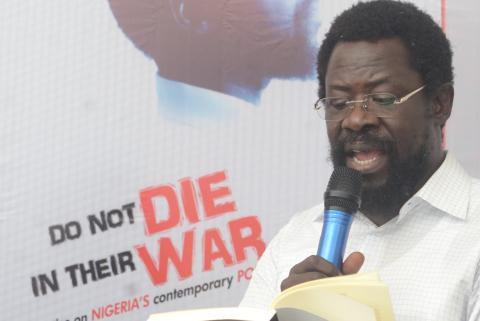
How related do you feel to the victims of the oppressive state? Are you aware that they are you? How have you shown your support for the ones that have been unjustly incarcerated in our prisons? How have you rationalised the endemic evil in our country? What got your tongue to be silent? Religion? Money? Fear? What disconnected you from the knowledge of what is in your own altruistic interest? How were you recruited into the army that is destroying the future, and dooming your own children to an uncertain future?

I have been fascinated by a phenomenon that I have observed in Nigeria since my childhood days. I was nine years old when I saw it for the first time but I did not fully comprehend it until I was out of secondary school. I am dealing with the subject extensively in my upcoming book but I am provoked by recent events in the country, and will write as briefly as I can on the subject this Lord’s day.
The critical disconnect. I prefer to characterise the disconnect as being an uncritical one but in order to keep this simple, I will stick with the more conventional usage: the critical disconnect.
When a people are disconnected from the struggle for their freedom, those who seek to liberate the bound, labours but in vain, except the force that seeks to liberate the people, is a violent one, which is external to the people, and merely another tendency, within the oppressive class. A class war, fought on the back of the poor, who fights in proxy wars, for the profit and empowerment of the rich. To be pacifists, and to then seek the liberation of the disconnected, is akin to an attempt to rescue a drowning man, which is intent on fighting his rescuer.
The Nigerian peoples are disconnected from the struggle for their freedom. They have always looked on, as others have presumed to speak on their behalf, and I have witnessed their hens, electing foxes as wet nurses to nurture their young. I watched and heard the people grumbling as we manned barricades in my youth, in protest of the abrogation of human and economic rights, and as we railed against the evil empire we were witnessing installed. I saw them hating us for preventing them from going about the business of “surviving” with our “childishness”.
But as I have read this morning, of the brutal beating administered on the young campus journalist, Ayoola Babalola, and his delivery to the operatives of the DSS, by the executives of the NAPS in Gateway Polytechnic, Sapaade, I am forced to ask some questions that have agitated my mind for a few days now: are Nigerians truly victims, or are they better described as accomplices?
Yes, turn up your noses and moan about how you were not like them in your youth, and how lost the youth have become. But I ask you to ask yourselves, how different are you in truth? Okay, so you don’t go around helping the DSS to bag their prey but how many times have you spoken in defense of the state, when it had carried out its evil schemes? How many times have you helped to strengthen the chains of oppression with your sickening subjectivisation of the truth?
How related do you feel to the victims of the oppressive state? Are you aware that they are you? How have you shown your support for the ones that have been unjustly incarcerated in our prisons? How have you rationalised the endemic evil in our country? What got your tongue to be silent? Religion? Money? Fear? What disconnected you from the knowledge of what is in your own altruistic interest? How were you recruited into the army that is destroying the future, and dooming your own children to an uncertain future?
Are you a victim, or an accomplice?